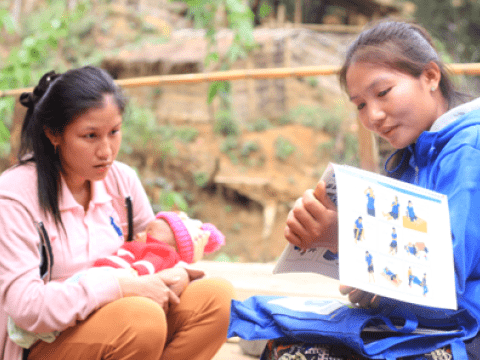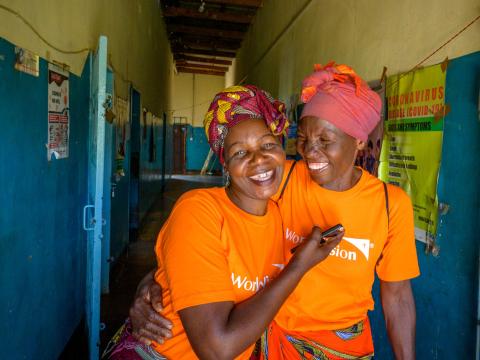Empowering CHWs with TTC to Improve Maternal and Child Health in Lao PDR Poster
Download
Empowering Community Health Workers (CHWs) with Timed and Targeted Counselling (TTC) to improve maternal and child health in rural Lao PDR
This poster was presented by Douangsamai Akkhasith, WV Laos, at the 4th International Community Health Workers Symposium in November 2025.
In rural Lao PDR, limited health infrastructure and geographic isolation create significant barriers to healthcare access. To address this, World Vision Laos launched the Timed and Targeted Counselling (TTC) project in 2022 to empower CHWs and improve maternal, newborn, and child health (MNCH) outcomes by enhancing health knowledge and promoting the use of essential services.
In 2024, the TTC approach was implemented across 80 villages in six districts of three provinces, training 226 CHWs. This initiative directly reached 2,364 children (aged 0–23 months) and 4,853 women of reproductive age through counselling. CHWs conducted monthly home visits using TTC tools to guide families on infant feeding, antenatal and postnatal care, and hygiene. The programme uses dialogue-based counselling and storytelling to promote discussion on key themes, including psychosocial support and maternal mental health, particularly among the most vulnerable households.
Despite challenges such as cultural feeding practices and limited male involvement, the project achieved notable improvements. In Salavan, antenatal care attendance by pregnant women reached 100%, while in Luang Prabang, skilled birth attendance rose from 64% to 82%. Child malnutrition also decreased substantially, with wasting reduced to 1% and stunting falling from 56% to 44%. Behavioural changes included increased exclusive breastfeeding and better community hygiene practices.
The TTC approach demonstrated that CHW-led counselling can effectively strengthen primary healthcare delivery and improve maternal and child health outcomes in challenging, low-resource settings. These results highlight the critical role of well-trained, supported CHWs in bridging service delivery gaps and building resilient, healthy communities.
